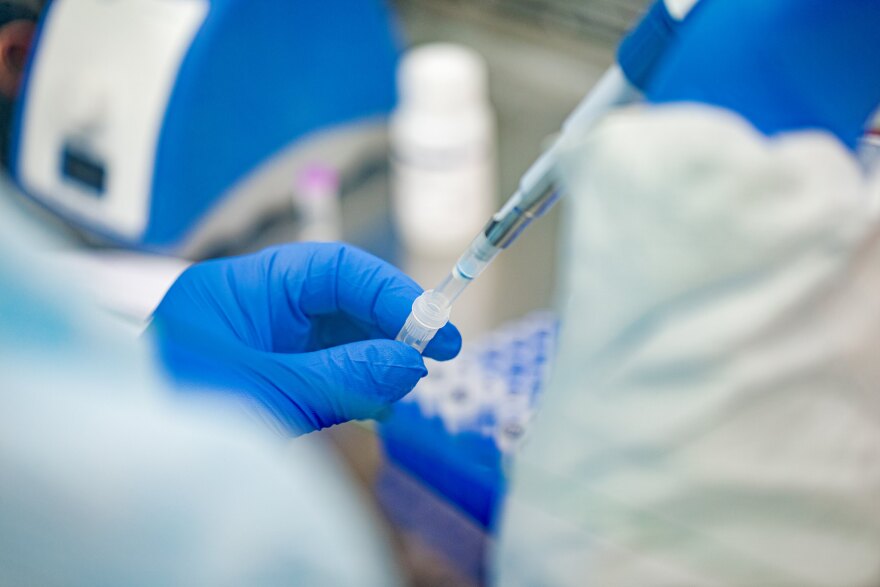Sixteen North Carolina GOP state senators said on Thursday that “other states are leaving us in the dust” when it comes to testing for the coronavirus and asked Democratic Gov. Roy Cooper why the state has fallen behind.
The senators, including Rob Bryan of Charlotte, wrote Cooper in response to a WFAE report Tuesday that said N.C. has struggled to expand testing, and ranked 45th out of 50 states and Washington D.C. when testing is analyzed on a per-capita basis.
“Other states are leaving us in the dust,” the senators said in a letter to Cooper. “They have a more robust testing infrastructure despite facing the same supply chain constraints as North Carolina.”
“Why has North Carolina fallen behind? What is your administration doing to increase testing volume? Why have other states managed to more successfully navigate the supply chain difficulties facing the entire world?
At the start of the pandemic in late March, North Carolina’s test rate was close to the national average.
But as many states ramped up their testing, N.C. fell behind. At the start of this week, North Carolina had administered roughly 140,000 tests, which is about 1.3 percent of the state’s population.
The national average is 2.2 percent.
Much of the increase nationwide has been driven by states that were hard-hit by the virus, such as New York and New Jersey.
But other states that haven’t hard large outbreaks have also passed North Carolina. Tennessee had 16 drive-thru testing sites last weekend that were free and open to anyone, even if they don’t have symptoms.
Tennessee has tested 3 percent of its population. Rhode Island has the highest test rate in the nation, at 7 percent.
Health and Human and Services Secretary Mandy Cohen has said that increasing testing is a key to safely re-opening the state. N.C. will enter Phase 1 of re-opening Friday evening. That allows most retail stores to open.
When Cooper extended the stay-at-home order on April 23, Cohen said the state’s goal is to test 5,000-7,000 people a day.
The state struggled to meet that goal at first but has tested more than 5,000 people in seven of the last nine days. The state is averaging 4,900 tests since the stay-at-home order was extended and the goal was announced.
North Carolina has administered 171,000 tests as of Thursday afternoon.
Dory MacMillan, a spokesperson for Cooper, said in a statement that, "despite ongoing supply challenges around the country, North Carolina has taken strong action to double the daily testing rate in recent weeks, and our state ranks 15th in tests completed."
She said the state has a formed "Testing Surge Work Group."
In Mecklenburg, which has more cases than any other North Carolina county, Public Health Director Gibbie Harris estimates the county has already tested 2.5% of the population. She said the county plans to rapidly expand testing this month and may allow testing of asymptomatic people.
South Carolina ranked 50th in the WFAE analysis of testing data from the COVID-19 tracking project, which included the states plus Washington, D.C. Only Arizona had tested a smaller percentage of its population.
S.C. Gov. Henry McMaster announced this week that his state will expand testing.
Click here for the latest coronavirus news on WFAE’s live blog.
Sign up here for The Frequency, WFAE’s daily email newsletter.
What questions do you have about the coronavirus? What has this experience been like for you? Share your questions below.
_



